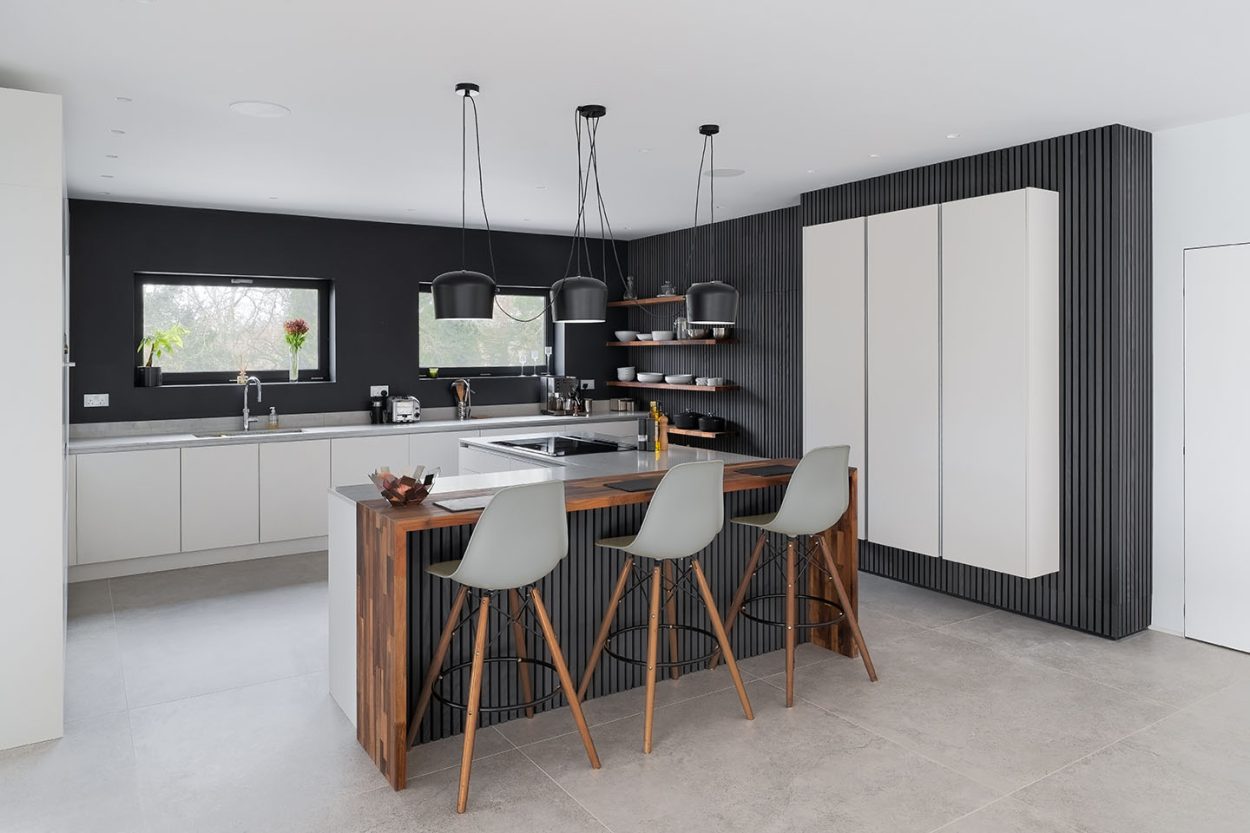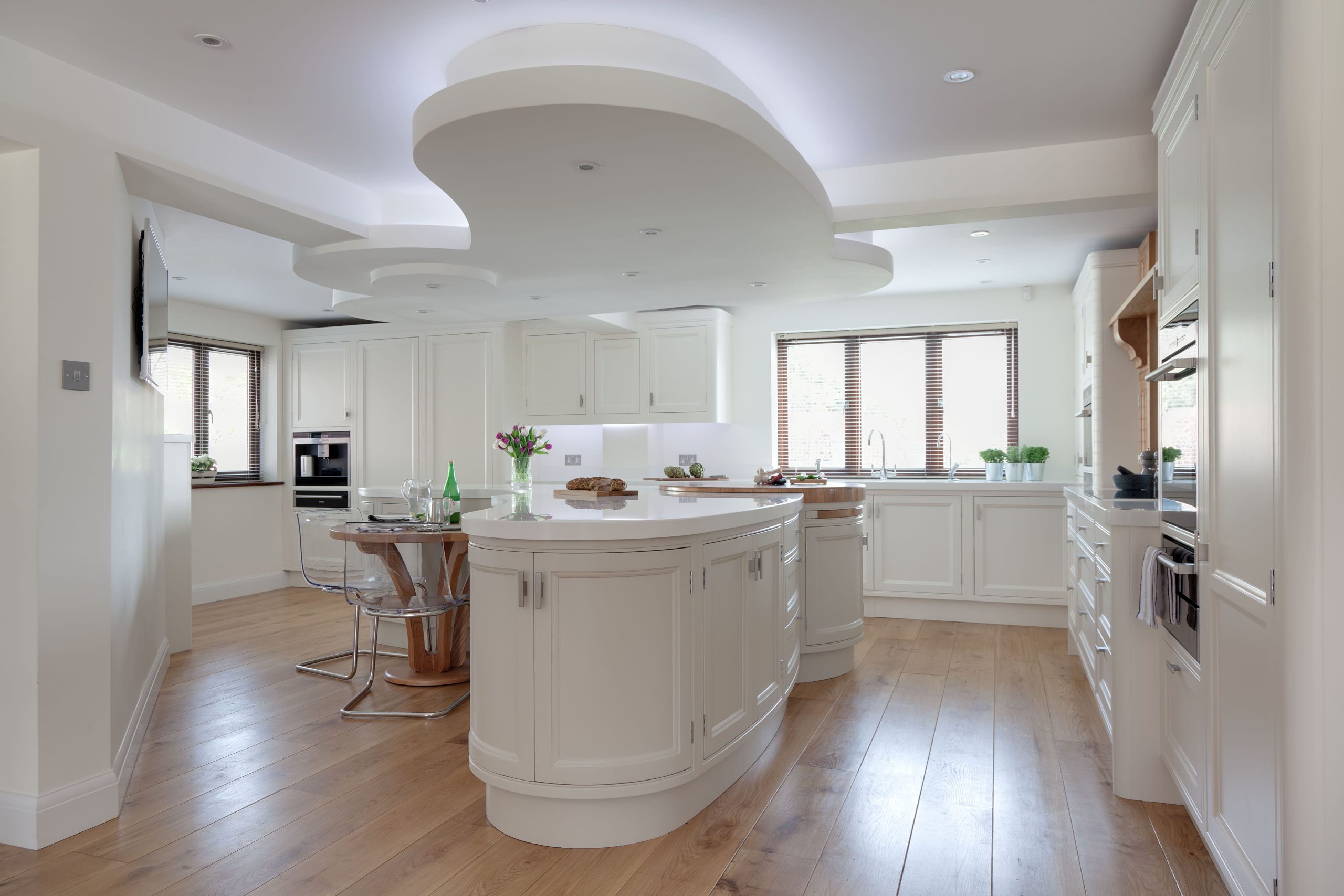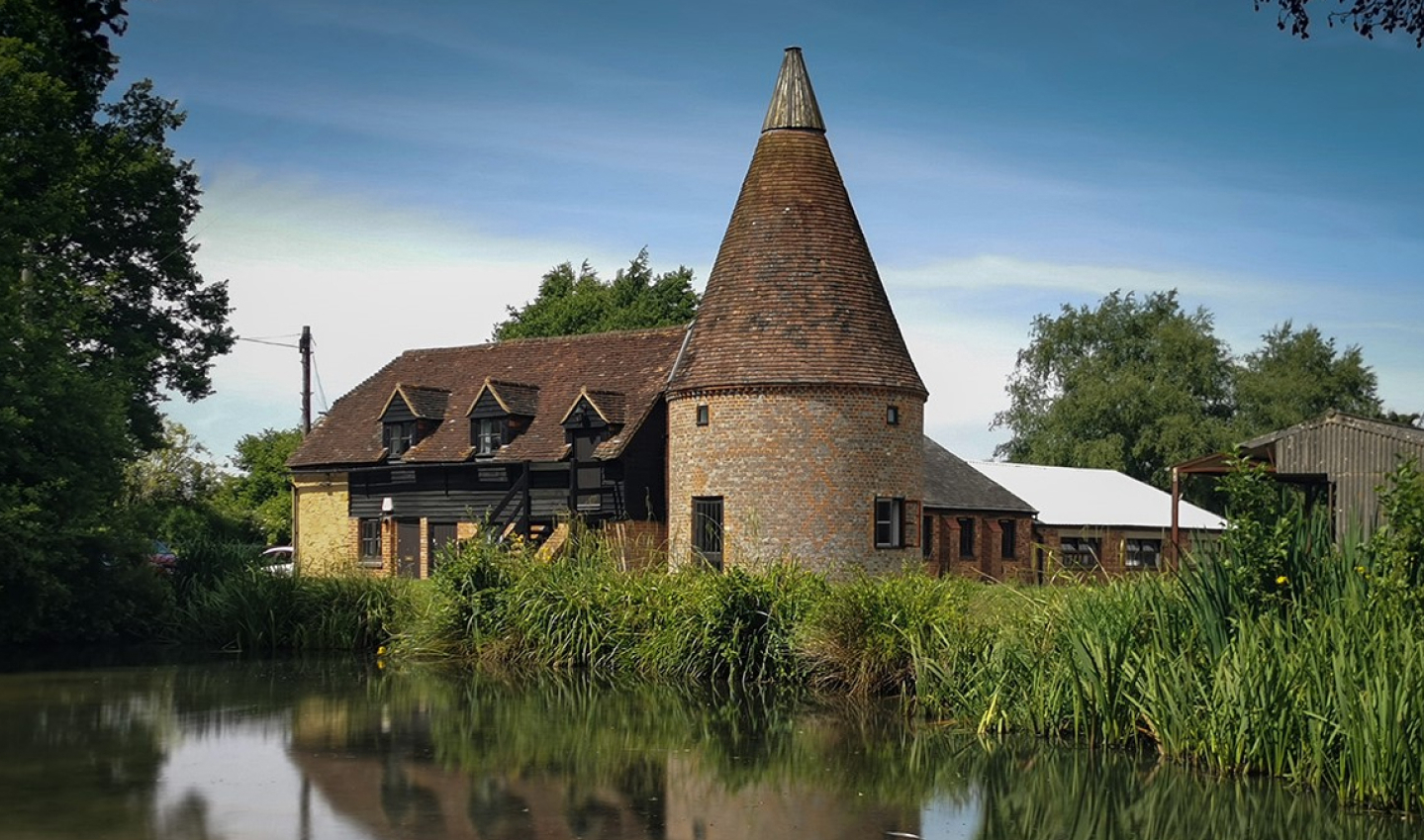When it comes to designing your dream kitchen, you’re faced with a myriad of choices, styles, and layouts. Perhaps one of the most pivotal decisions you’ll make during this process is whether to opt for a bespoke kitchen or a standard one. Both options have their merits, but understanding their differences can help you navigate this significant investment in your home. In this blog post, we will unravel the features of bespoke and standard kitchens, allowing you to make an informed decision that suits your lifestyle and aesthetic preferences.
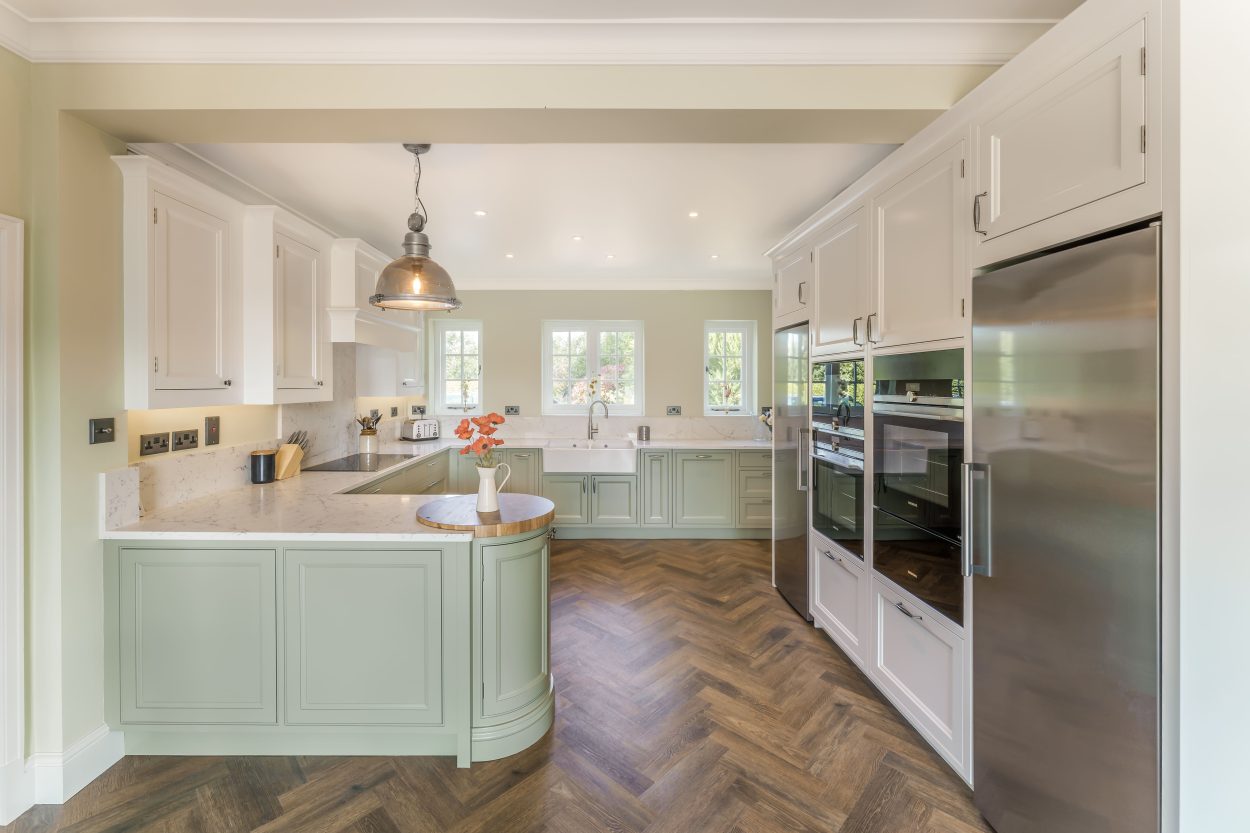
Defining Bespoke and Standard Kitchens
Standard Kitchens
Standard kitchens are pre-designed layouts typically offered by manufacturers. Each model is produced in bulk, meaning that you can find a range of options that fit a variety of styles and budgets. These kitchens usually come with set measurements and specific features that can be tweaked, but the overall appearance and functionality adhere to a more rigid framework. This option is often favored by homeowners looking for a more straightforward approach, and it can be an affordable way to achieve a stylish kitchen without extensive customisation.
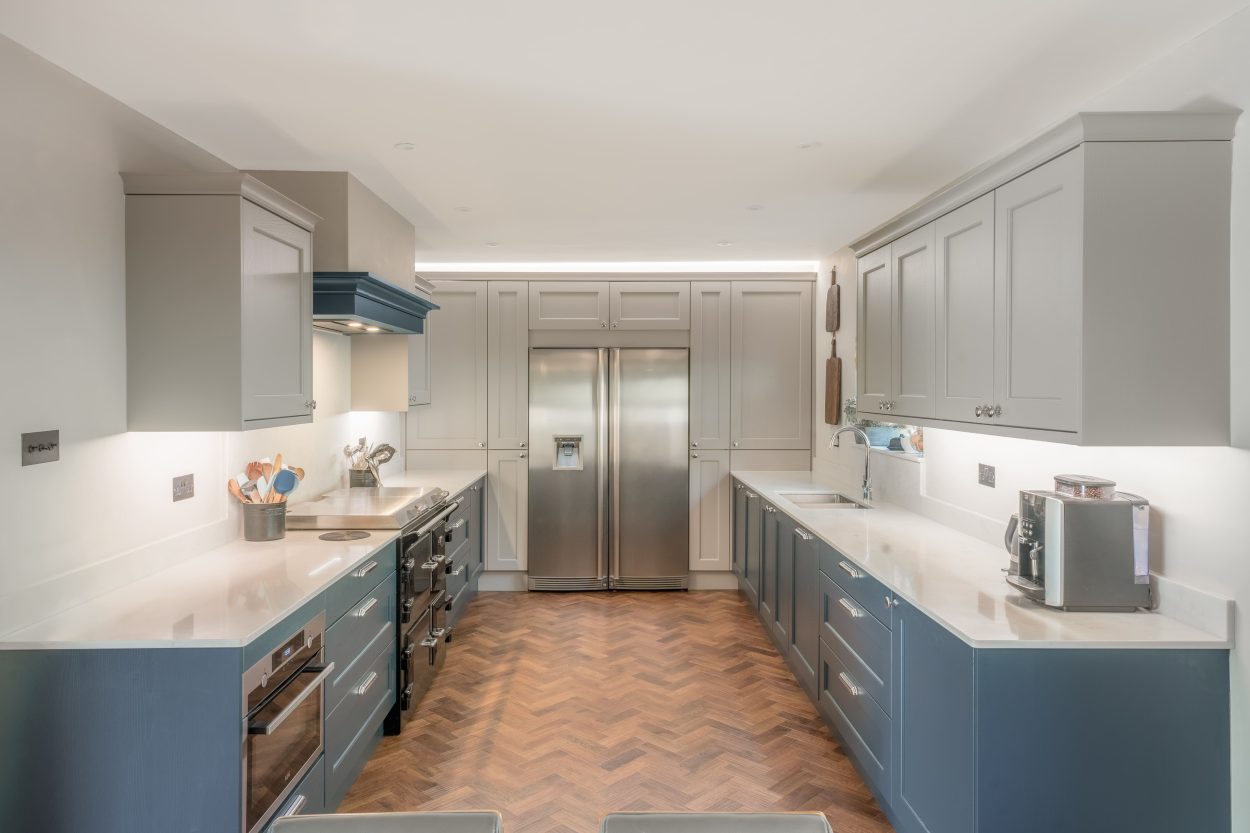
Bespoke Kitchens
On the other hand, bespoke kitchens are entirely customised to fit your unique space and preferences. Designed from the ground up, a bespoke kitchen takes into account your lifestyle, tastes, and functional needs. Every element—from the cabinetry to the countertops—is tailored to not only fit your kitchen’s dimensions but also to reflect your individual style. Craftsmen often handcraft bespoke kitchens, ensuring that every detail is meticulously considered and executed.
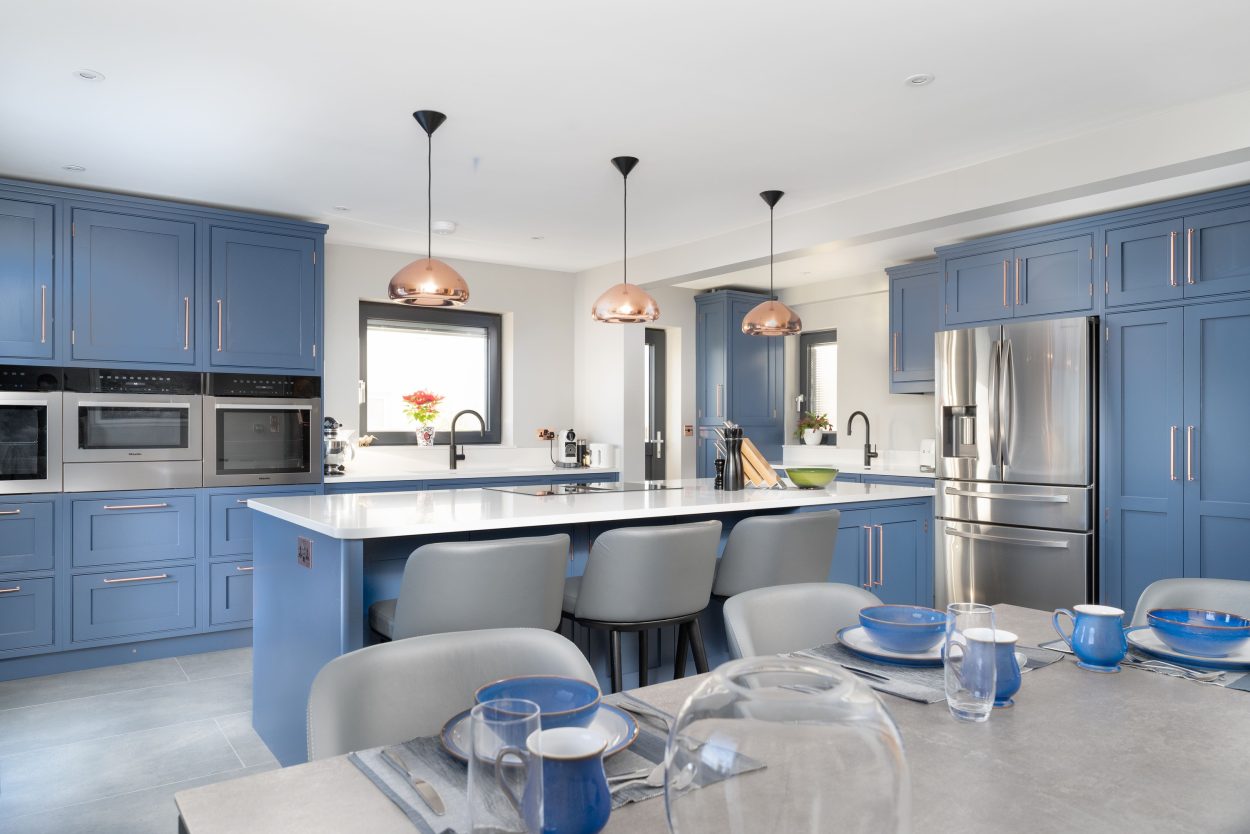
Key Differences
1. Customisation
- Bespoke: Every detail can be personalised, from the types of materials to the designs and finishes. Homeowners can provide specific requirements regarding colors, textures, and layouts. A bespoke kitchen is like a blank canvas; you get to paint your vision exactly how you like it.
- Standard: Customisation options are limited to available models. While you may have choices regarding colors and certain features, the core design is predetermined. If you like a particular look but need different dimensions, you may find it challenging to achieve your desired outcome.
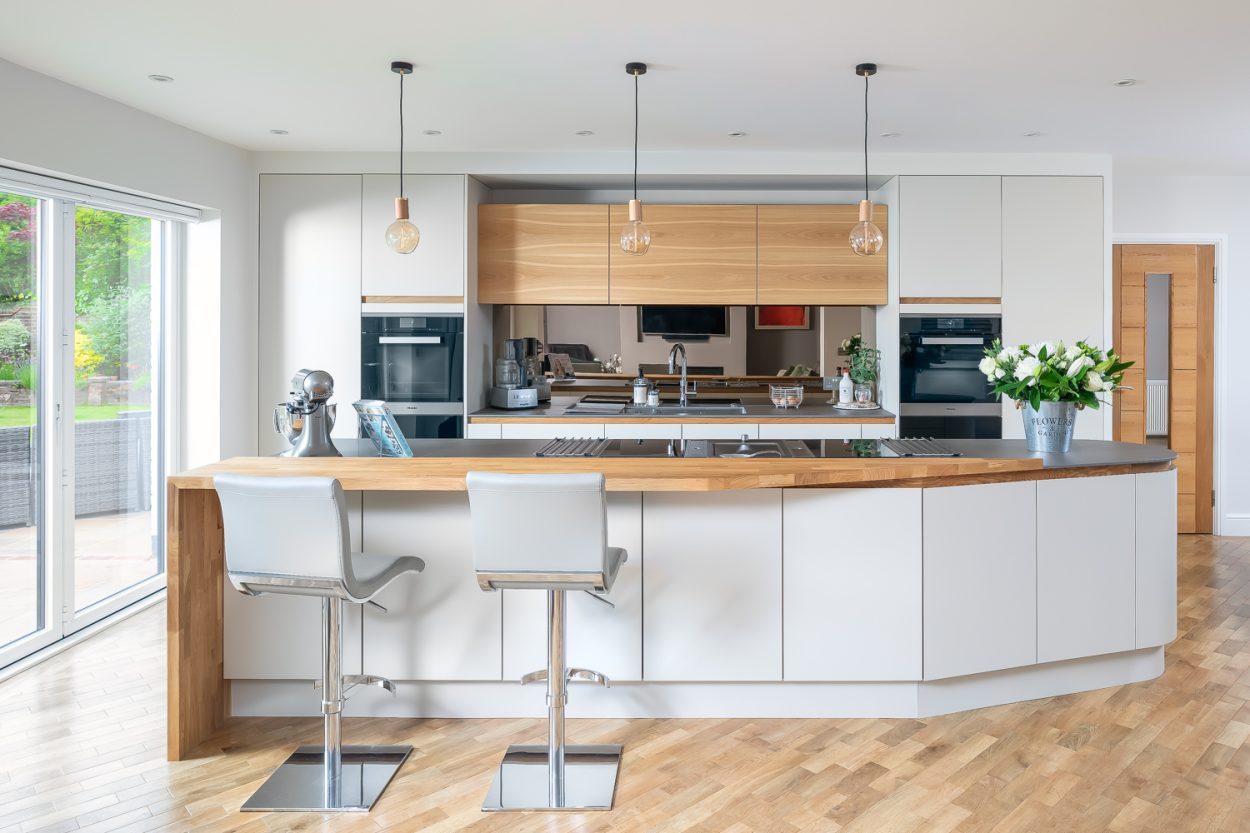
2. Fit and Functionality
- Bespoke: A key advantage of bespoke kitchens is that they can be tailored to fit any space perfectly, regardless of its shape or size. An awkward corner can be transformed into functional storage, and the workflow can be tailored to your cooking habits. This means better functionality and optimized space usage.
- Standard: Standard kitchens come with established layouts that may not suit every home. While they may fit common kitchen dimensions, they can be less efficient in unusual spaces, sometimes resulting in compromise on functionality.
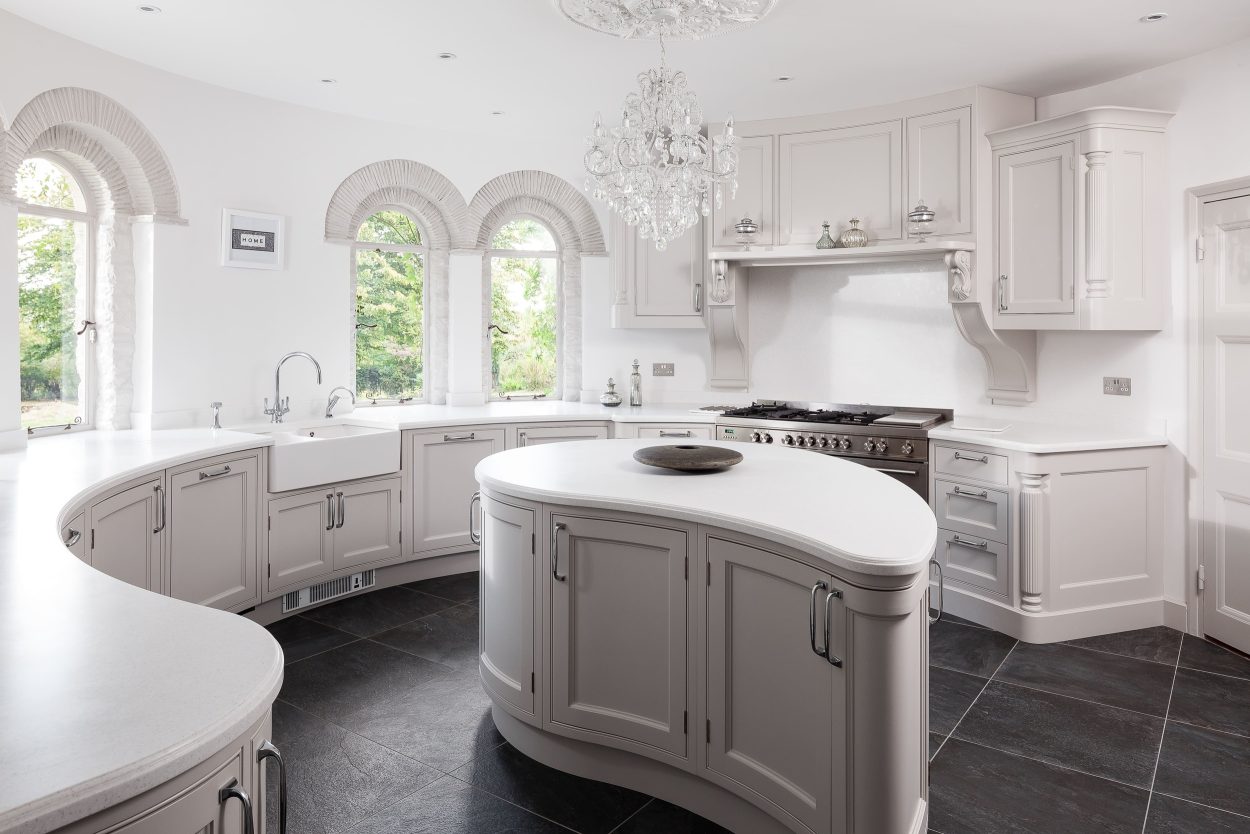
3. Quality of Materials
- Bespoke: Materials for bespoke kitchens are often of higher quality. Since these kitchens are designed with specific elements in mind, you often find more luxurious and unique materials used, which can elevate the overall aesthetic and durability of the kitchen.
- Standard: Standard kitchens generally use materials that can be mass-produced, which may make them more affordable but can affect longevity and visual appeal. The finishes might also be more limited compared to the endless possibilities offered in bespoke design.
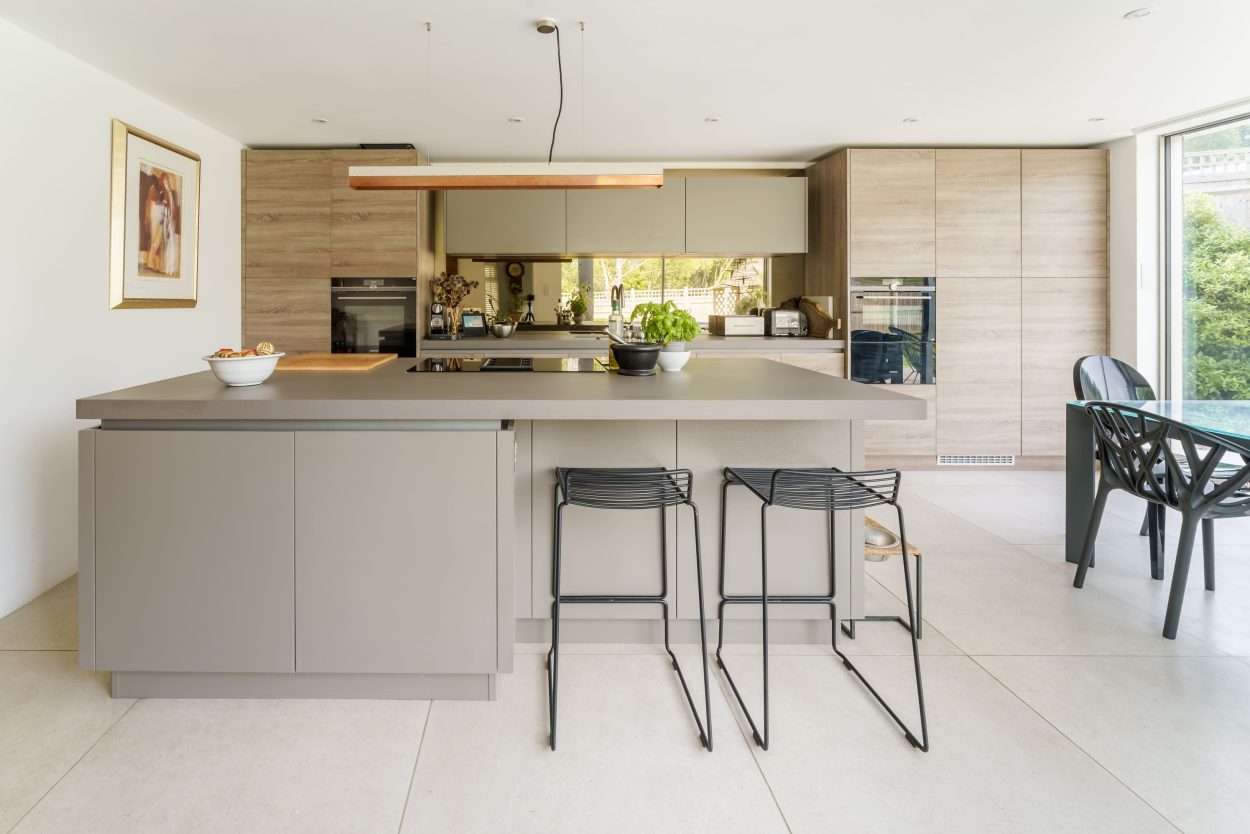
4. Cost
- Bespoke: Generally, bespoke kitchens come at a higher price point due to the custom craftsmanship involved. The investment can be significant, but it is often justified by the unique quality and tailored functionality that bespoke kitchens provide.
- Standard: With standard kitchens, you will typically find more budget-friendly options available as they are produced in larger quantities. However, be mindful that you might sacrifice quality or functionality for a lower price.
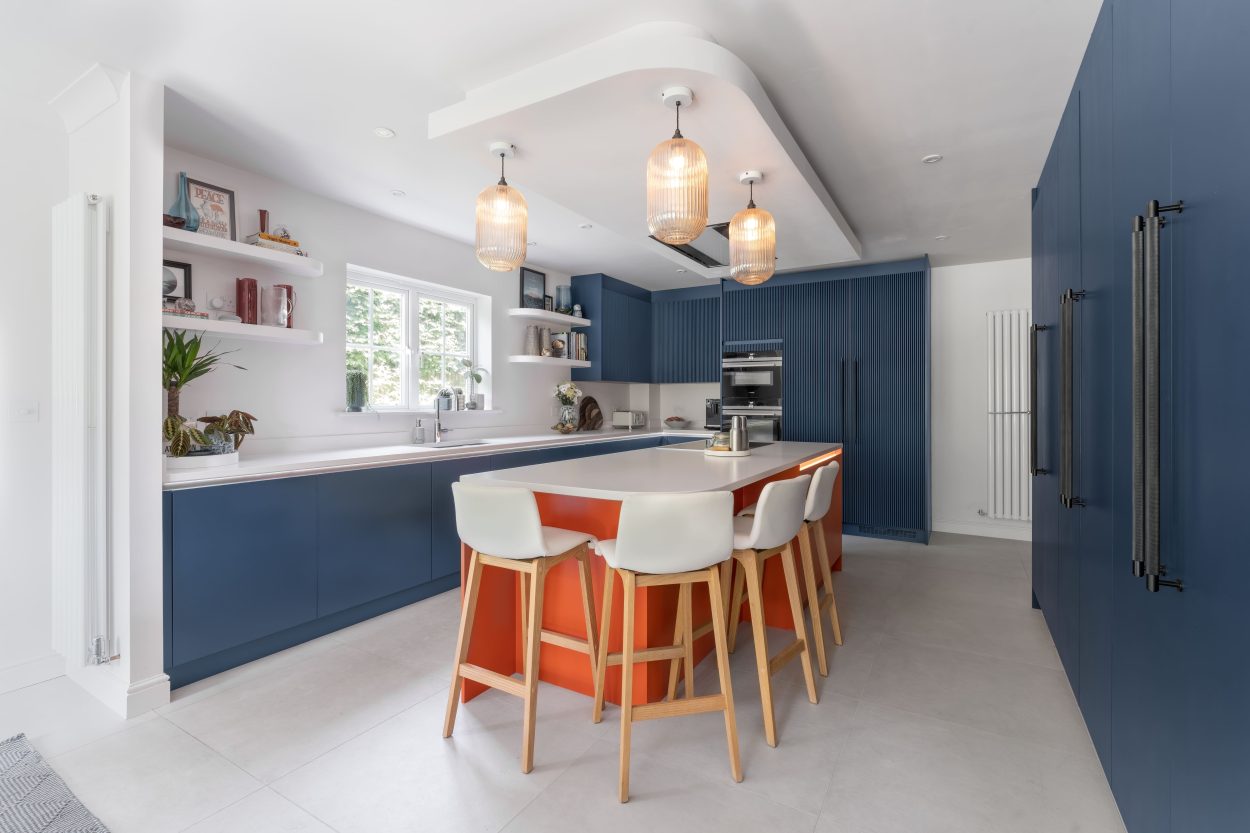
5. Lead Time
- Bespoke: The design and manufacturing process of a bespoke kitchen can take longer due to the level of customisation involved. Planning, crafting, and installation typically span several weeks or months, depending on the complexity of the design.
- Standard: Standard kitchens can often be delivered and installed much quicker, making them ideal for homeowners on a short timeline.
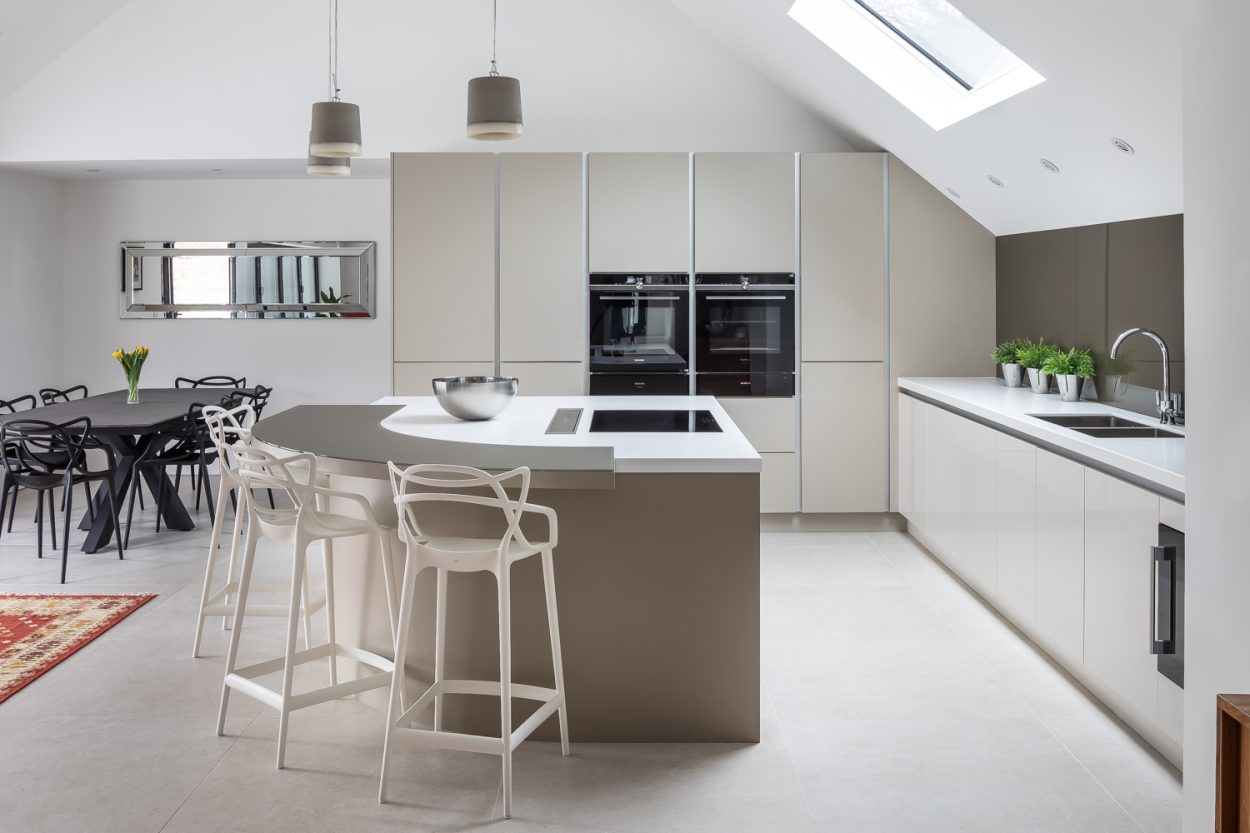
Which One is Right for You?
Ultimately, the decision between a bespoke and a standard kitchen hinges on your specific needs, budget, and personal style. If you value uniqueness, quality, and a personalised experience, a bespoke kitchen may be the perfect choice for you. On the contrary, if you are seeking convenience and affordability, a standard kitchen could fulfill your requirements without breaking the bank.
Whichever path you choose, it’s essential to partner with a reputable kitchen designer who can guide you through the process and help you achieve the kitchen of your dreams. After all, the kitchen is often considered the heart of the home; it should reflect your style and meet your needs seamlessly.
In conclusion, understanding the differences between bespoke and standard kitchens is the first step in creating a space where you can gather, cook, and share memories for years to come. Contact us today at [email protected] or call 01892 337575 to begin designing your dream kitchen!
